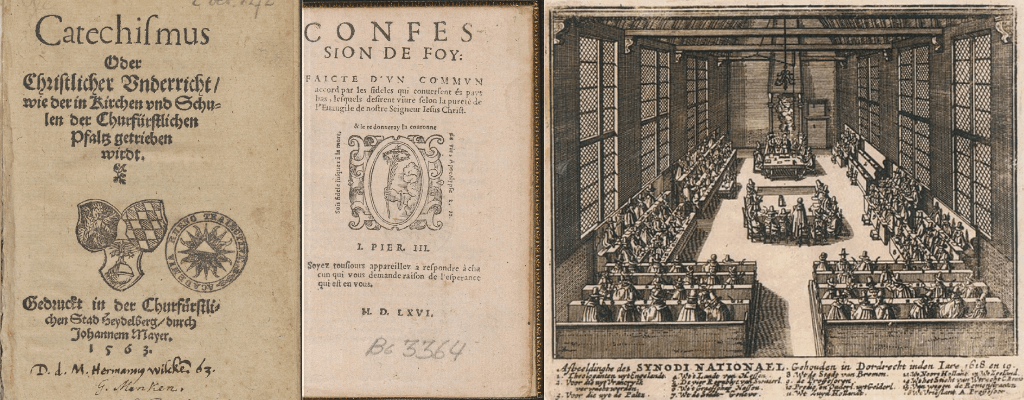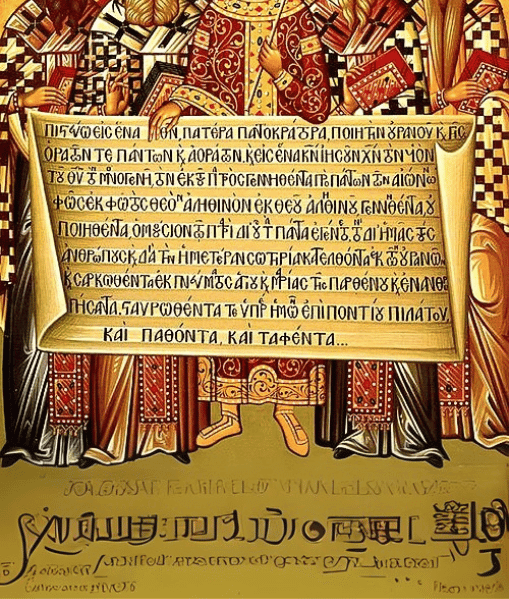What We Believe
- Home
- About Us
- What we Believe
With the Church of Jesus Christ of all times and places we are united in the one true Christian faith. This faith is firmly based on the Word of God, the Bible. Throughout the church’s history, however, it has been found necessary to defend and promote the truth of God’s Word through creeds and confessions. Along with nearly all Christian churches we willingly receive the creeds that have come to us from the first centuries of the early Church, the Apostles’ Creed, Nicene Creed and Athanasian Creed.
Further, as a Reformed Church, we also express the unity of faith as it is confessed in the Belgic Confession, the Heidelberg Catechism and the Canons of Dort. The creeds and confessions of the church are not the Word of God themselves, but we hold them to be faithful summaries of God’s Word and as such they assist us in our faith and life. The most used and loved confession is the Heidelberg Catechism, which is taught to the youth of the church and is normally used in the Sunday afternoon church services. The catechism begins by asking and answering:
Q.1. What is thy only comfort in life and death?
Answer: That I with body and soul,1 both in life and death, am not my own,2 but belong unto my faithful Savior Jesus Christ;3 who, with His precious blood,4 hath fully satisfied for all my sins,5 and delivered me from all the power of the devil;6 and so preserves me7
that without the will of my heavenly Father, not a hair can fall from my head;8 yea, that all things must be subservient to my salvation,9 and therefore, by His Holy Spirit, He also assures me of eternal life,10 and makes me sincerely willing and ready, henceforth, to live unto Him.11
Three Forms of Unity

The three forms of unity are a summary of what we believe, and are based wholly on the Bible.
Heidelberg Catechism: Written in Heidelberg by two German theologians, Zacharius Ursinus and Caspar Olevianus, at the request of Elector Frederick III, it was adopted by the Synod of Heidelberg in 1563. It consists of a number of questions and answers, and is organised into 52 Lord’s Days, allowing the minister to preach on one each Sunday of the year.
Belgic Confession: Adopted by the Synod of Dort in 1618-1619 by the Reformed Churches, the Belgic Confession was written in 1561 by a preacher of the Reformed Churches in the Southern Netherlands (now Belgium), Guide de Bres, who died a martyr in 1567. Its primary purpose at the time was to protest against the cruel oppression by the Roman Catholic government, and to prove to the persecuters that the adherents of the Reformed faith were not rebels, but law-abiding citizens.
Canons of Dort: Also known as the Five Articles against the Remonstrants, the Canons of Dort were adopted at the Synod of Dort in 1618-1619, and are statements of doctrine written to define the Reformed doctrine and reject that of Arminius and his followers.

Ecumenical Creeds
We confess the ecumenical creeds to be true and accurate summaries of the Bible.
The Apostles’ Creed: This creed is called the Apostles’ Creed, not because it was written by the apostles themselves, but because it contains a brief summary of their teachings. It sets forth their doctrine, as has been said, “in sublime simplicity, in unsurpassable brevity, in beautiful order, and with liturgical solemnity.”
The Nicene Creed: The Nicene Creed is a statement of the orthodox faith of the early Christian church, in opposition to certain heresies, especially Arianism. These heresies concerned the doctrine of the Trinity and of the person of Christ and were refuted at the Council of Nicea (325 A.D.).
The Athanasian Creed: This creed is named after Athanasius (293-373 A.D.), the champion of orthodoxy over against Arian attacks on the doctrine of the Trinity. The teachings of Augustine (354-430 A.D.) in particular form the background to the Christological section.

